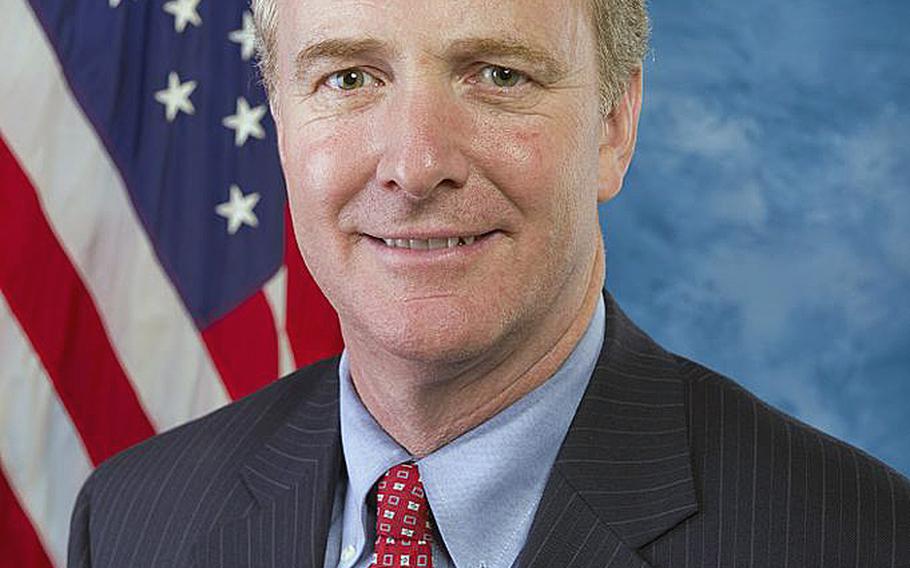
U.S. Rep. Chris Van Hollen, D-Md., said Thursday, July 17, 2014, that lawmakers must ensure that DOD "budgeting is transparent and that we’re honest in terms of what we allocate in the base budgets and what we say is war funding." (U.S. House of Representatives)
The departments of Defense and State should not use temporary funding to pay for long-term needs, members of the House Budget Committee said Thursday, as DOD officials defended their request of $58.6 billion for overseas contingency operations.
Top DOD officials have proposed using supplement Afghan war funding from the Overseas Contingency Operations budget to cover minor military spending shortfalls, saying it could offer a way around mandatory military budget cuts as threats rise in the Middle East and eastern Europe.
“We need to carefully budget for our wartime needs,” and perhaps increase the base funding for DOD, if necessary, but contingency funds should not be used as a “slush fund,” committee Chairman Paul Ryan said.
Rep. Chris Van Hollen, the committee’s ranking Democrat, agreed.
“We have to make sure that our budgeting is transparent and that we’re honest in terms of what we allocate in the base budgets and what we say is war funding and something that belongs in the OCO account,” he said.
Committee members stressed that they want to ensure that Afghanistan does not go the way of Iraq — where the Islamic State has seized several key cities and is threatening Baghdad — and said they want to provide sufficient funding to preserve security gains in Afghanistan.
“If you want to see the consequences of a precipitous withdrawal, look no further than Iraq,” Ryan said. “We can’t make the same mistakes in Afghanistan.”
Still, Ryan and other committee members said they are concerned that some of the language is overly vague and amounts to the DOD and the Department of State asking for a “blank check.”
Adm. James “Sandy” Winnefeld, vice chairman of the Joint Chiefs of Staff, said the contingency funds are used for expenses over and above peacetime deployments, and the money in the budget request is allocated intentionally and thoughtfully. When combined with the State Department’s contingency fund request, the overall amount of money sought by the two departments would come to $65.8 billion.
Deputy Defense Secretary Robert Work said the Pentagon sees the contingency funding not as a slush fund, but “funding our war-time operations,” including the expenses inherent in a drawdown, with strict rules about how the money can be used.
“We always believed that OCO would last for several years, at least for reset and reconstitution,” Work said.
On Wednesday, Work and Winnefeld told the House Armed Services Committee that the contingency budget, which was created to fund the wars in Iraq and Afghanistan, is needed to pay for operations elsewhere in the world.
During his testimony Thursday, Winnefeld argued that just because operations don’t take place in Afghanistan doesn’t mean they are not in support of the effort in Afghanistan.
Rep. Scott Garrett, R-N.J., said that when the Overseas Contingency Operations budget was established, it was for “unforeseen and temporary costs of war.”
Garrett said he was surprised to hear Work describe the funding requirement as enduring because he doesn’t believe anyone who supported the contingency budget “believed that we’d be here 13 years later and hearing that.”
And, he said, all of the things in the proposed budget cannot be called unforeseen, particularly since some of them are based on commitments made in at the 2012 NATO summit in Chicago, and, therefore, should be a part of the DOD’s base budget request.
The world is a dangerous place, Ryan said, and “we have to be prepared for it.” But the money must be allocated clearly and properly, he added.
“Let’s make sure that we give our warfighters and our civilian people on the front lines what they need, when they need it, to do their jobs to keep us safe. And that ought to be something in the base budget, not with these emergency [funds],” Ryan said.
Hlad.jennifer@stripes.com Twitter: @jhlad